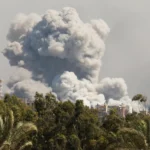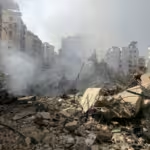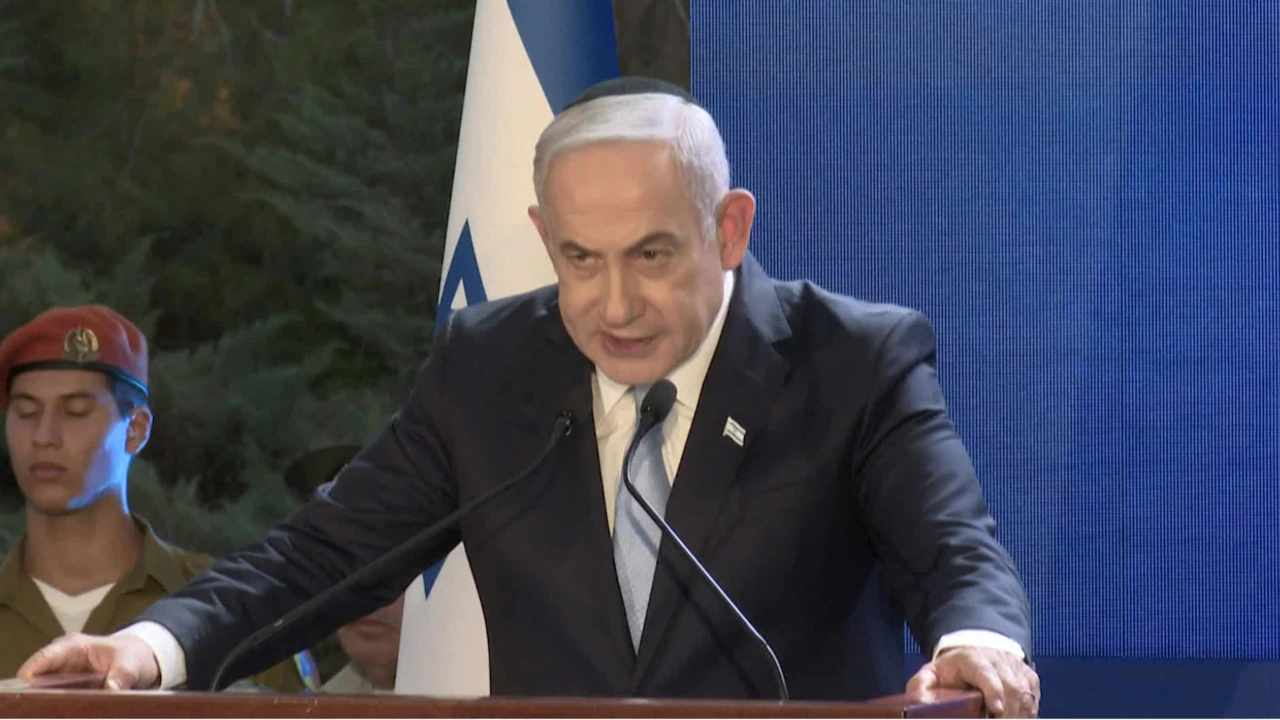Prime Minister Benjamin Netanyahu issued a stern warning to Iran on Monday, saying that no place in the Middle East is beyond range for Israel’s military. Speaking amid stepped-up airstrikes targeting Hezbollah in Lebanon as part of Israel’s broader campaign against Iran-aligned militant groups, Netanyahu declared that the country will “do whatever it takes” to prevent Tehran from obtaining nuclear weapons.
Netanyahu delivered a direct address to the Iranian people in a video, warning that their government is bringing them “closer to the abyss.” He asked the people of Iran to resist the influence of their ruling theocratic regime, which he said was escalating regional tensions and imperilling peace.
“With each passing moment, the regime is bringing you noble Persian people to the abyss,” Netanyahu said in the video. There is nowhere in the Middle East that Israel cannot reach, he added, warning the Iranian government was casting the region “deeper into darkness and deeper into war.”
Israel scaled up its military operation against Hezbollah in the last days with heavy airstrikes against Lebanon. This is part of the larger strategy of the Israeli to hit the “Axis of Resistance” -an amorphous network of Iran-backed militant groups which operates across the Middle East -Syria, Iraq, and Yemen.
But things took a turn when Hassan Nasrallah was killed by an Israeli airstrike on Friday. He had been the longtime leader of Hezbollah. Nasrallah was one of Hezbollah’s most prominent figures in militant operations and was deeply connected to Iran’s IRGC. His death will badly hurt Hezbollah, but Iran threatened to retaliate for the losses of Nasrallah and Abbas Nilforoushan, a top IRGC Quds Force commander killed in the same strike.
In his address, Netanyahu appeared to be a little more optimistic than most of his peers about the relatively nearer future of Iran as “finally free” from its current regime, as he saw it, sooner than anybody anticipated: “Everything will be different, our two countries, Israel and Iran, will be at peace, and Iran will thrive as never before.”
Iran, however, sought to temper the prospect of going directly head-to-head with Israel. Iranian foreign ministry spokesman Nasser Kanani Monday said Tehran had no “short-term intention” to deploy its forces into a confrontation with Israel. Instead, he stressed that Hezbollah and Palestinian militias could well defend themselves against Israeli “aggression.”
“There is no need to send extra or volunteer forces of the Islamic Republic of Iran,” Kanani said, reaffirming Tehran’s support for Hezbollah and Palestinian fighters.
The Iran Supreme Council leader, Ali Khamenei, also commented, saying the loss of Nasrallah “will not be in vain,” as he vowed continued support for Hezbollah. He urged unity within the Axis of Resistance to confront their common enemy, Israel, which he claimed was too weak to cause serious harm to Hezbollah operations.
The situation still garners the international spotlight, and to that effect, fears of further escalation in the region surface as neither Israel nor Iran displays any signs of backing off on words and action.















